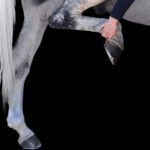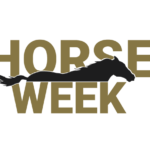January 27, 2010 — The American Humane Association’s program manager for Animal Emergency Services has deployed to Haiti to assist in an international effort to help animals affected by the earthquake. Tracy Reis, an expert responder who has participated in the rescue and sheltering of more than 12,000 animals, will arrive in Port-au-Prince Thursday as part of the Animal Relief Coalition for Haiti, which is jointly led by the World Society for the Protection of Animals (WSPA) and the International Fund for Animal Welfare (IFAW).
Reis will join Animal Relief Coalition for Haiti (ARCH) team members in the Dominican Republic and Haiti to begin implementing a feeding program for the community dogs and to assist with immediate veterinary aid to animals in Haiti. That effort will be conducted in cooperation with the Haitian government and, in particular, with the Ministry of Environment.
“We had not considered including animals in the plans we’re working up now, but after meeting the ARCH team, we can see that it would be good to do so,” said Jean Marie Claude Germain, the Haitian Minister of Environment. “In addition to preventing deforestation and protecting our water reserves, we are also discussing the need for a vaccination program in order to prevent the spread of diseases amongst the animal populations.”
ARCH received an official request from the government of Haiti (made to WSPA on January 21) asking for immediate assistance and that human resources be deployed to help with the emergency relief operation “as soon as possible.”
Efforts by American Humane include:
- Deploying Tracy Reis, program manager for American Humane’s Animal Emergency Services, to join relief efforts in Haiti, at the urgent request of ARCH’s lead agencies. Reis will arrive in Port-au-Prince on January 28.
- As the coalition’s U.S.-based resource unit leader, American Humane has responsibility for identifying volunteers from each organization in the coalition and gathering skill and resource information on each of them, in order to send the most highly effective teams to Haiti for animal response.
- American Humane was the first professional animal welfare organization to join the coalition, has donated an initial $25,000 to help fund the coalition’s efforts, and expects to provide additional funding to this response.
- American Humane’s Red Star Animal Emergency ServicesT volunteers are preparing for deployment to Haiti by updating their vaccinations and receiving other medical assessments to ensure that they are fully prepared to respond..
- American Humane has notified more than 200 trained and FEMA-certified animal rescue responders on its response roster. A smaller subset of highly qualified responders will be hand-picked and may join teams on the ground in Haiti, once long-term mission objectives are determined.
ARCH’s activities to date include:
- ARCH team members arrived in Port-au-Prince on January 23 and spent the day meeting with governmental authorities and local animal welfare agencies.
- ? ARCH members on the ground have begun assessing the state of health, well-being and needs of the animals.
- ARCH members expect to begin missions focused on vaccinating street dogs and assisting with the care of livestock.
- More than $150,000 has been raised to support the work of the coalition, including the funding donated by American Humane and other animal welfare groups that have joined the coalition.
- A vehicle has been purchased and outfitted as a mobile veterinary unit to support the response effort.
Many challenges face the team in Haiti:
- According to a veterinarian who lives and works in Port-au-Prince, the walls around many of the yards have fallen, and dogs that usually return to their owners’ homes are now displaced.
- A rough estimate, according to the veterinarian, is that about 150,000 dogs live in the Port-au-Prince area, many of which are now wandering the streets.
- He also confirmed there was a substantial population of livestock in the areas affected; most of them housed in “backyard” farms.
- A lack of security has hindered some efforts to aid animals.
- Securing a suitable site for food, water, medical supplies, etc., for animals may take time while the needs of human consumables are addressed first.
Statistics and Information (FAOSTAT, ? FAO Statistics Division 2010, 21 January 2010):
- About 150,000 dogs live in the Port-au-Prince area.
- An estimated 600,000 head of cattle, believed to be mainly in rural areas.
- Livestock includes goats, chickens, swine, donkeys, horses and mules.
“Many partners in the coalition, and those of us who were aiding animals after Katrina, are well aware that the issues the Haitian people and animals face will be long term,” said Debrah Schnackenberg, vice president of American Humane’s Animal Protection Division and director of its Animal Emergency Services program. “It is our hope that the experience we all gained after Katrina, and the partnerships we have been building since then, will be demonstrated in the number of animals’ lives we save and the Haitian families we help in the coming weeks and months.”
American Humane, in addition to more than a dozen of the world’s leading animal protection agencies, brings extensive experience in handling and rescuing animals after disasters. Animal rescue teams on the ground in Haiti are prepared to provide everything from direct rescue and veterinary care for injured animals to longer-term vaccinations to prevent outbreaks of disease, such as rabies and leptospirosis.
People who want to support these vital efforts and help other animals in disasters can donate at www.americanhumane.org/aes-donate. For more information, and to read our frequently updated blog on our efforts to help in Haiti, please visit www.americanhumane.org/haiti.





